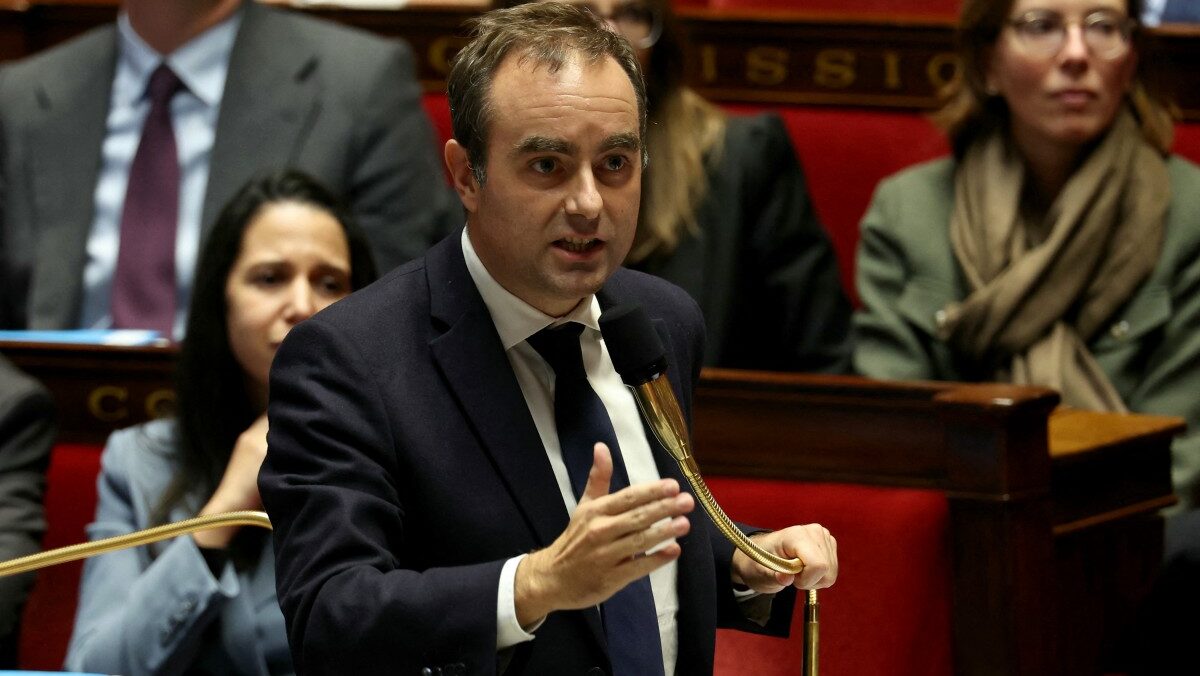In his eagerly awaited first policy speech, Prime Minister Sébastien Lecornu sent enough signals to the Left to temporarily secure his survival. He announced his intention to suspend the highly controversial pension reform, which had been hard-won by his predecessor, Élisabeth Borne.
Although he was officially appointed by Emmanuel Macron on September 9th, it was not until the afternoon of Tuesday, October 14th, that Sébastien Lecornu was finally able to present the broad outlines of his government programme with a team formed alongside him.
This is a delicate exercise: on his first day in office, the prime minister came under pressure with two motions of no confidence already planned, aimed at ousting him as soon as possible. These will be reviewed by MPs on Wednesday or Thursday this week, leaving Lecornu with very little time to convince them to save his skin.
To achieve this result, Lecornu made a substantial concession to the socialist left, whose position is decisive in bringing about the vote of no confidence. He therefore announced his intention to suspend the pension reform: “I will propose to Parliament this autumn that we suspend the 2023 pension reform until the presidential election.”
The time has come for political compromise. It seems difficult to imagine that this is the same pension reform that was created during a time of major political and social tension, with the use of Article 49.3 allowing it to be adopted against the wishes of MPs, that Macron once proudly presented as one of the few successful reforms of his presidency—and that is now being called into question.
The Socialists are touting the suspension of the pension reform as a “victory,” but also as a first step towards “blocking and repealing” it, predicted the first secretary of the Socialist Party, Olivier Faure.
As Paul Sugy, a columnist for Le Figaro, lucidly notes, “Olivier Faure has just obtained, without entering the government and without any definitive compensation, a preliminary concession greater than anything Les Républicains have obtained in a year of participation in the government.” In a way, Macronism, which has allowed itself the luxury of playing the centrist card, claiming to transcend traditional political divisions in the service of progressive reform of the country, is returning to its origins—the Left. Did Emmanuel Macron not begin his political career as a minister under the socialist François Hollande?
The motion put forward by La France Insoumise (LFI), or that proposed by the Rassemblement National (RN), both of which must be examined by MPs before the end of the week, could only be adopted with the support of socialist and independent MPs. The agreement between the socialists and Lecornu on the issue of pensions will allow the government to escape defeat—temporarily.
In addition to this important announcement, the prime minister also began to outline his draft budget, which, like previous budgets, is neither visionary, courageous nor innovative. The bill was approved during Lecornu’s first cabinet meeting. It includes the introduction of a tax on the transfer of family holdings and partially renews the windfall tax on large corporate profits, originally devised by previous ministers. The bill also provides for a one-year extension of the progressive surtax on the highest incomes, introduced in 2025. The draft social security budget, which is to be voted on at the same time by MPs, provides for a freeze on pensions and social benefits in 2026.
The RN has listed €19 billion in tax increases, compared with only €5 billion in reductions. “Taxes up by €19 billion, out-of-control spending up by €30 billion, including €6 billion for the EU, and €74 billion in interest. Only a no-confidence vote will stop this waste!” said RN MP Jean-Philippe Tanguy, spokesman on economic issues.
The prime minister’s speech was not followed by an immediate vote of confidence, as the constitution does not require it. The next steps, which are the examination of the two motions of no confidence put forward by opposition parties, are not expected to turn out to the prime minister’s disadvantage.
Faced with these two votes, LR persists in its absurdity. Retailleau’s party claims not to support the government, without wanting to bring it down. Marine Le Pen condemned LR’s choice with this damning statement: “Unlike the PS [Socialist Party], LR has not sold out to Macronism. It has given itself… “
But the reprieve is only temporary. The institutional respite—it would be presumptuous to speak of appeasement—does nothing to resolve the political crisis, which has merely been put on hold. If it were to be stifled in the end, it would be at the cost of dramatic paralysis, exacerbating the country’s collapse.

